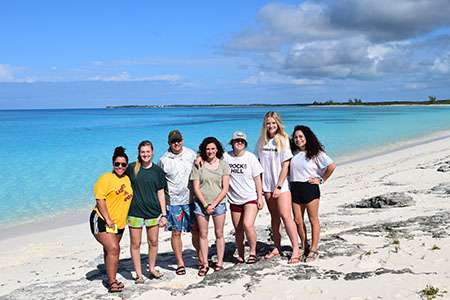
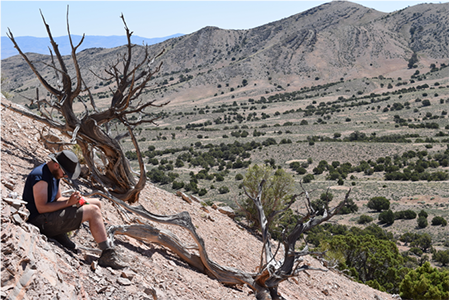
You want to tackle critical problems facing the world today. Training in Geology will help prepare you to solve some of the most critical issues facing our planet today, such as climate change, pollution, resources and natural hazards.
It's an exciting work environment. Many opportunities in the geosciences involve both field and laboratory work. Field work can take you to many breathtaking places to investigate a range of questions. At Winthrop, study in geology will literally allow you to get your hands dirty as you can collaborate on research with faculty on a breadth of topics.
There's a promising job outlook. There is demand for employees with geology education with the growth of energy, environmental protection and resource exploration/management demands. The 2020 median pay for geoscientists is $93,580 per year.
Complements many majors. Courses in Geology enable you to collect and analyze data, prepare formal reports and effectively communicate findings. These skills translate to all professional disciplines and prepare you for success in higher education or in any professional career.
The minor in geology consists of 18 semester hours in GEOL, including GEOL 110 and 113, and at least 6 hours in GEOL courses numbered above 299.
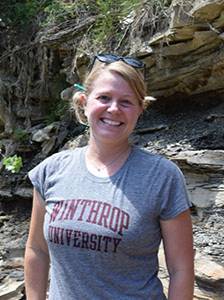 Diana Boyer
Diana BoyerDr. Boyer's research focuses on using fossils and geochemistry to understand ancient ocean conditions. Specifically, she has applied these methods to the investigation of the End Devonian mass extinction events (~375 million years ago).
Courses taught: Historical Geology (GEOL 210/211), Oceanography (GEOL 220), Dinosaurs (GEOL 270), Geology of the Bahamas (GEOL 345), Fundamentals of Geochemistry (GEOL 335), Honors Seminar: Mass extinctions past and present (HONR 205H), Climate and Society (ENVS 350), and HMXP.
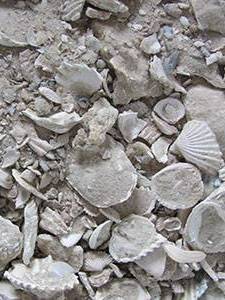
Dr. Daley's research focuses on reconstructing molluscan paleocommunities and taphonomy of the Atlantic coastal plain.
Courses taught: Physical Geology (GEOL 110), Historical Geology (GEOL 210, 211), History of Life
(GEOL 360), and HMXP.
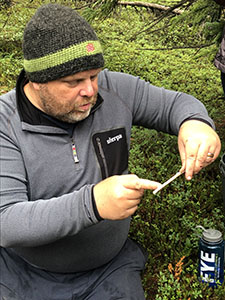 Scott Werts
Scott WertsDr. Werts uses soil material to investigate a range of environmental questions. Projects include understanding long-term carbon sequestration in soils through stable isotopes, heating in soils from surface fires, and the geomorphology and stable isotope composition of peat cores for paleoclimate studies.
Courses taught: Physical Geology (GEOL 110), Fundamentals of Geochemistry (GEOL 335), Soils and Land Use (GEOL 245), Hydrogeology (GEOL 340), Subarctic Landscapes (ENVS/GEOL 350, 351), Climate Change Present and Future (ENVS 350), Senior seminar in the Environment (ENVS 490), and ACAD.